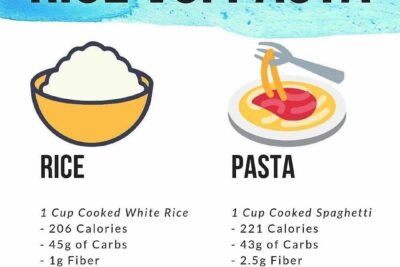
Ketones are a hot topic in the world of nutrition and health, but there's often confusion about what they actually are and how they fit into our diet. In a society where the ketogenic diet has gained notable popularity, it's important to understand the role ketones play in this dietary strategy.
Carbohydrates, fats, and proteins are the main nutrients that provide energy to our bodies. When carbohydrates are scarce, our body turns to fat for energy, producing ketones as a byproduct. This metabolic state is known as ketosis. But how does this translate into our daily lives and dietary choices?
🔍 Seeking a breakthrough in Type 2 Diabetes management?
Discover our expert insights and innovative approaches on ‘How to Cure Diabetes’.
Click to transform your health journey today!
What you\'ll find in this article?
What are ketones?
Ketones, or ketone bodies, are compounds produced by the liver during the breakdown of fats when carbohydrate intake is low. They serve as an alternative energy source for various organs, particularly the brain, which cannot directly utilize fat for energy. Ketones are indicative of the body using fat for fuel and are a cornerstone of the ketogenic diet.
The three primary types of ketone bodies are acetoacetate, beta-hydroxybutyrate (BHB), and acetone. Each plays a unique role in energy production and regulation within the body. Their presence in the blood signifies that the body has entered a state of ketosis.
Ketones in the diet are most commonly associated with the ketogenic diet, which is high in fat and low in carbohydrates. This diet aims to induce a state of ketosis, allowing the body to efficiently burn fat for energy.
Explore our specialized services in diabetes care 🌟.
From personalized diet plans to effective exercise routines, we have what you need to take control of Type 2 Diabetes.
Visit our services page now!












How does ketosis work?
Ketosis is a metabolic state where the body uses fat, rather than carbohydrates, as its primary source of energy. When you consume a low-carbohydrate diet, your insulin levels decrease, and your body begins to burn stored fats. The liver then converts these fats into ketones, which can be used as a fuel source throughout the body.
Entering ketosis doesn't happen overnight; it typically takes a few days of restricting carbohydrates for the body to make the transition. Monitoring your ketone levels can help confirm that you have entered this metabolic state.
Benefits of the ketogenic diet
The ketogenic diet has been associated with a variety of health benefits:
- Weight loss: By burning fat for energy, the body can tap into fat stores more effectively, potentially leading to weight loss.
- Improved blood sugar control: For individuals with type 2 diabetes or insulin resistance, a ketogenic diet may help stabilize blood sugar levels.
- Enhanced brain function: Some research suggests that ketones are a more efficient fuel source for the brain, leading to improved cognitive function.
- Reduced seizures: The ketogenic diet was originally developed to treat epilepsy, and it remains an effective treatment for some individuals with this condition.
Common symptoms of ketosis
While entering ketosis, individuals may experience a range of symptoms collectively known as the "keto flu." These can include:
- Fatigue
- Headaches
- Brain fog
- Irritability
- Muscle cramps
These symptoms are temporary and usually subside after the initial adaptation period.
How to test for ketones
Testing ketone levels can help you determine whether you're in ketosis. There are three primary methods:
- Blood ketone meter: Measures BHB levels in the blood and is considered the most accurate method.
- Ketone urine strips: Provide a quick and easy way to assess ketone excretion through urine, although they are less accurate than blood measurements.
- Breath ketone analyzers: Estimate the amount of acetone in the breath, which correlates with ketone levels in the body.
Managing high ketone levels
If ketone levels become too high, it can lead to a dangerous condition known as ketoacidosis, particularly in individuals with type 1 diabetes. Symptoms of high ketone levels include:
- Nausea and vomiting
- Dehydration
- Deep, rapid breathing
- Confusion
It's essential to seek medical attention if you experience these symptoms. Managing high ketone levels involves balancing your diet, monitoring blood sugar and ketone levels, and staying hydrated.
As part of understanding ketones in the diet, it's important to highlight their role in fat burning. When the body uses ketones for energy, it's a clear indication that it's burning fat stores, which is why many people turn to the ketogenic diet for weight loss.
Foods That Promote Ketone Production
Foods that are high in fat and low in carbohydrates are key to promoting ketone production. These include:
- Healthy fats like avocados and coconut oil
- High-fat dairy products like cheese and butter
- Nuts and seeds
- Fatty fish and meats
Ketones and Fat Burning
Ketones are directly linked to fat burning in the body. When carbohydrate intake is low, the body turns to stored fat for energy, producing ketones as a result. This process is an indication that fat is being utilized as fuel, which is a core aspect of weight loss on a ketogenic diet.
Dangers of High Ketone Levels
While ketosis is generally safe for healthy individuals, excessively high levels of ketones can lead to ketoacidosis, a potentially life-threatening condition. This is especially true for those with type 1 diabetes, as they are at a higher risk for developing this complication.
What foods are ketones?
Ketones are not found in foods; rather, they are produced by the body during the breakdown of fats. However, certain foods can promote ketone production by encouraging the body to enter ketosis. These foods are typically high in fats and low in carbohydrates.
Examples of such foods include:
- Oils like coconut and olive oil
- Fatty fish like salmon and mackerel
- Grass-fed meats
- Low-carb vegetables like spinach and kale
What do ketones do for your body?
Ketones serve as an alternative energy source for several organs, particularly the brain. They are produced when the body metabolizes fat for fuel in response to a low carbohydrate intake. Ketones also play a role in reducing inflammation and oxidative stress.
What happens if ketones are high?
High ketone levels can lead to ketoacidosis, a serious condition that can result in diabetic coma or death if left untreated. Symptoms include excessive thirst, frequent urination, nausea, abdominal pain, and confusion. People experiencing these symptoms should seek immediate medical attention.
Do ketones mean I'm burning fat?
Yes, the presence of ketones in the blood or urine is typically an indicator that your body is burning fat for energy. This is the principle behind the ketogenic diet, which aims to induce a state of ketosis for sustained fat burning and weight loss.
As part of our journey in understanding ketones in diet, let’s explore a video that provides additional insights. Take a look at this informative piece:
In conclusion, ketones play a vital role in diets where carbohydrate intake is limited, such as the ketogenic diet. They are produced when the body begins to burn fat for energy, leading to potential benefits like weight loss and improved mental clarity. However, it's crucial to manage ketone levels carefully to avoid the risks associated with high ketone levels, especially for individuals with type 1 diabetes. By understanding how to properly test for and maintain ketone levels, individuals can safely enjoy the benefits of ketosis.



